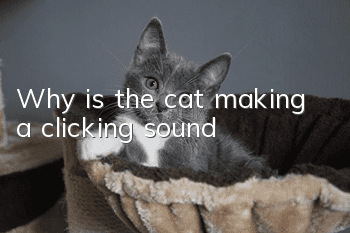After a cat’s nasal branch is healed, does it need to be isolated for life?

Feline rhinoplasty is a feline upper respiratory tract disease caused by feline herpes virus. The causative agent of the disease is feline rhinotracheitis herpes virus. Under natural conditions, it is generally transmitted through the respiratory tract and digestive tract.
After a cat is infected with this disease, the virus can multiply in the epithelial cells of the sick cat's nasal cavity, throat, organs, conjunctiva, and tongue, and be excreted out of the body along with its secretions.
Some cats do not show symptoms after infection, which is called latent infection, but they can still shed the virus. Therefore, healthy cats can be infected with this disease when they come into direct contact with secretions or contaminated equipment, such as feed, water, utensils and the surrounding environment.
Nasal bronchus is contagious and poses a great threat to kittens. Cats infected with nasal bronchus must be isolated and treated in time.
When the cat has completely recovered and has no recurrence, it does not need to be isolated from other cats. If your cat relapses from time to time after being cured, don’t let it have too much contact with healthy cats at home.
How to judge whether a cat is recovered? Ask the doctor! How long will it take for the cat to be quarantined after recovery? Ask the doctor! No one knows the cat’s condition better than the doctor who treats it.
After the owner has been in contact with a sick cat, he must also disinfect it before playing with other cats. Cat supplies, toys, cat litter boxes, etc. at home need to be disinfected regularly.
Pay attention to supplementing nutrients for cats and enhancing their physical fitness.
Cats with nasal congestion sometimes experience abnormal tearing, red and swollen eyes, or even conjunctivitis. At this time, you should pay attention to cleaning. If it is more serious, you can also use erythromycin eye ointment.
If your cat has oral ulcers, you should note that in addition to using topical medications, you also need to supplement with vitamin B to help with recovery.
Get vaccinated regularly! Cats who don’t go out should also get vaccinated regularly!!
If you don’t want to vaccinate too many, just do an antibody test for your cat. If the antibodies in your cat are qualified, you don’t need to inject them.
- How to achieve balanced nutrition for cats? What to do if a cat is malnourished
- What’s up with cats’ airplane ears?
- What should I do if my cat has a cold? Cat cold symptoms!
- What are the oral diseases of cats?
- How to cure cat ear mites? How to completely cure cat ear mites!
- What's going on with the kitten's stomach growling?
- How often should you feed your cat canned food?
- Can cat ringworm be cured by taking it internally?
- What to do if you find a stray kitten
- How soon can a cat be weaned and picked up?



